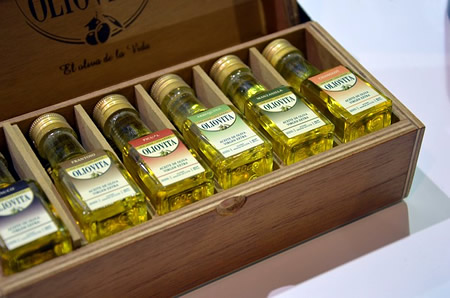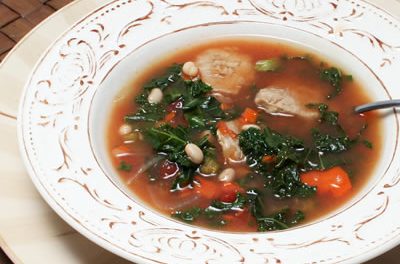It's no surprise that the Mediterranean diet is linked to good health. Small reliance on meat and scant use of butter limit the saturated fat that raises blood cholesterol and possibly promotes development of some cancers.
The Mediterranean diet includes a large proportion of fish, which is rich in omega-3 fats that reduce inflammation, which seems to raise both heart and cancer risks. An abundance of fruits, vegetables and beans provides the many different phytochemicals that protect blood vessels and guard cells against cancer-causing substances. Now, studies show that olive oil may bolster each one of these benefits.
Originally, scientists thought olive oil's primary benefit was its monounsaturated fat. Because 75 percent of the fatty acid "building blocks" that make up olive oil come from monounsaturated fat, and only 13 percent from saturated fat, it's easy to see why blood cholesterol goes down when olive oil replaces butter and high-fat meat as the main source of fat. Analysis relates olive oil to the Mediterranean diet's link with lower blood pressure, as well.
Olive oil also offers several health advantages over more polyunsaturated vegetable oils. Monounsaturated oils seem to cause less production of the bile acids in the digestive tract that promote colon cancer development. Because monounsaturated fat is more stable than polyunsaturated fat, it is less likely to generate the free radicals that create harmful blood cholesterol (low-density lipoprotein, or "LDL"). LDL damages blood vessels and can create changes in genes that may lead to cancer. Finally, although olive oil does not provide the healthful omega-3 fat found in seafood, it does strengthen omega-3's anti-inflammatory effects.
Research now shows that many of olive oil's health benefits may actually come from the more than 30 plant compounds it contains. These compounds' antioxidant and anti-inflammatory effects promote heart health and protect against cancer. Olive oil compounds also increase enzymes that block activation of carcinogens and improve their removal from thebody. These compounds appear to slow development of cancer cells and increase their self-destruction. While many of these benefits have been seen in laboratory studies rather than controlled human intervention trials, they are supported by what we see in population studies of the Mediterranean diet.
All types of olive oil provide the monounsaturated fat linked with health benefits, but to get the highest levels of the protective plant compounds, choose "extra virgin" or "virgin" oil, the least processed forms. Store it away from light and heat to maintain phytochemical content.
"Pure" olive oil is still high in monounsaturated fat, but has lost protective plant compounds in refining. "Light" olive oil is lighter in flavor and color, not fat or calorie content. Some people may choose light olive oil for baking or recipes where an olive oil flavor is undesirable, but so many of the protective phytochemicals have been removed in refining those versions that canola oil may be a healthier alternative. (Canola oil also provides some omega-3 fat and more vitamin E.) From a cook's perspective, olive oil may not be the best choice for cooking at a high temperature. The sediment naturally found in extra virgin olive oil can make it more likely to burn or smoke. Canola and peanut oils have a higher smoke point.
No single oil is the best choice in all situations, but research now shows that olive oil is a major component of the Mediterranean diet's healthy reputation.
AICR











